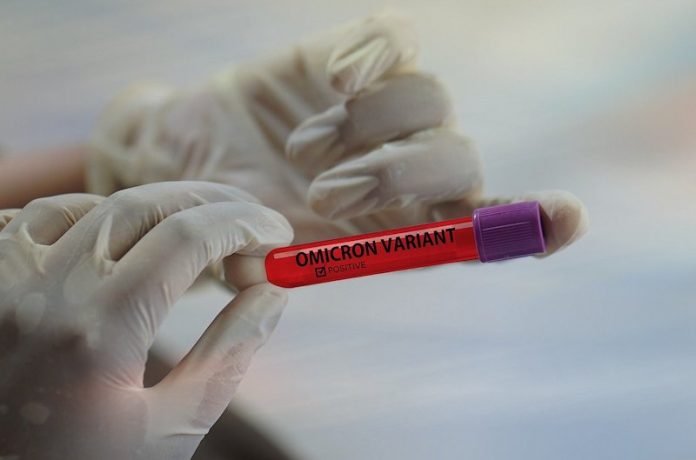
Based on the quick rise and precipitous drop of Omicron in South Africa, Harvard experts are cautiously hopeful about a possible decline of the surging COVID variant in the very near future, even as they warn of dramatic case spikes, overloaded hospitals, and slowly rising deaths in the interim.
“In South Africa, the omicron wave lasted on the order of weeks. I would imagine that this will be something that lasts similarly long, perhaps a bit longer in the U.S.,” said Jake Lemieux, an infectious diseases specialist at Massachusetts General Hospital.
“There’s a seasonal component to it—there was last season—so I think it’s going to be a difficult winter, and the maximal period seems like it’s about to unfold over the next few weeks.”
Lemieux and other coronavirus experts at MassCPR emphasized during a media call on Tuesday that important key questions remain unanswered and that the experience in South Africa—whose population is much younger than that of the U.S.—may not be mirrored here.
Omicron peaked there weeks ago, followed by a rapid drop in cases, and the country has also seen proportionally lower levels of both hospitalizations and deaths.
“It’s very clear that there’s an astonishing number of cases, a moderate number of hospitalizations, and very low deaths,” said Dan Barouch, William Bosworth Castle Professor of Medicine at Harvard Medical School.
Barouch also said that there is initial evidence in animal studies that the fast-spreading variant does indeed cause less severe disease, with infection concentrated in the upper airways and to a lesser extent in the lungs, where it can cause life-threatening pneumonia.
Reports from the U.K., whose population more closely resembles the U.S. in age, indicate that cases have begun falling in London, though experts there questioned whether they might still plateau and warned that most of the decline has come in younger age groups.
The U.S. has seen no sign of an omicron peak, however. Statistics from the Centers from Disease Control and Prevention show the seven-day moving average of new cases topping 491,000 on Jan. 3, nearly double last January’s pandemic peak of about 250,000.
New daily hospital admissions, which typically trail cases by a few weeks, have risen as well, though, at 4.45 per 100,000 and have not yet topped last January’s alpha variant-driven peak of 4.92.
Deaths, which trail hospitalizations, have surged since late November, but the seven-day average of 1,165 on Jan. 3 has not yet reached the levels seen during prior waves, including 2,299 during April 2020, when the original virus circulated, 3,421 in last January’s surge after alpha had arrived on the scene, and 1,923 during this past September’s delta wave.
Another result of omicron’s rapid emergence in the U.S. has been rising numbers of children with COVID infections—325,000 during the week ending Dec. 30—though Katherine Luzuriaga, a pediatrician and vice provost for clinical and translational research at the University of Massachusetts Medical School, said they’re not seeing a significant increase in the rates of hospitalization or death due to the ailment.
Despite those encouraging signs, the outlook for the immediate future remains perilous, with hospitals already operating at capacity and a recent survey of viral particles in Boston-area wastewater showing a massive spike in virus that so outstrips any point of the pandemic that Jeremy Luban, co-lead of MassCPR’s viral variants program, called it “absolutely terrifying.”
Experts also pointed out that the U.S.” size means it is likely that omicron will play out—as did waves of other variants—at different times and in different manners in different parts of the country.
Though difficult weeks lie ahead, Barouch said that successive waves of infection and vaccination are shifting the landscape onto which new variants emerge to one where many potential hosts have some form of pre-existing immunity and some, having been vaccinated and infected, have several.
Written by Alvin Powell.
If you care about Omicron, please read studies about everything you need to know about Omicron and COVID boosters, and how COVID becomes endemic.
For more information about health, please see recent studies about new risk factor for severe COVID-19, and results showing existing drugs could help treat COVID-19.



